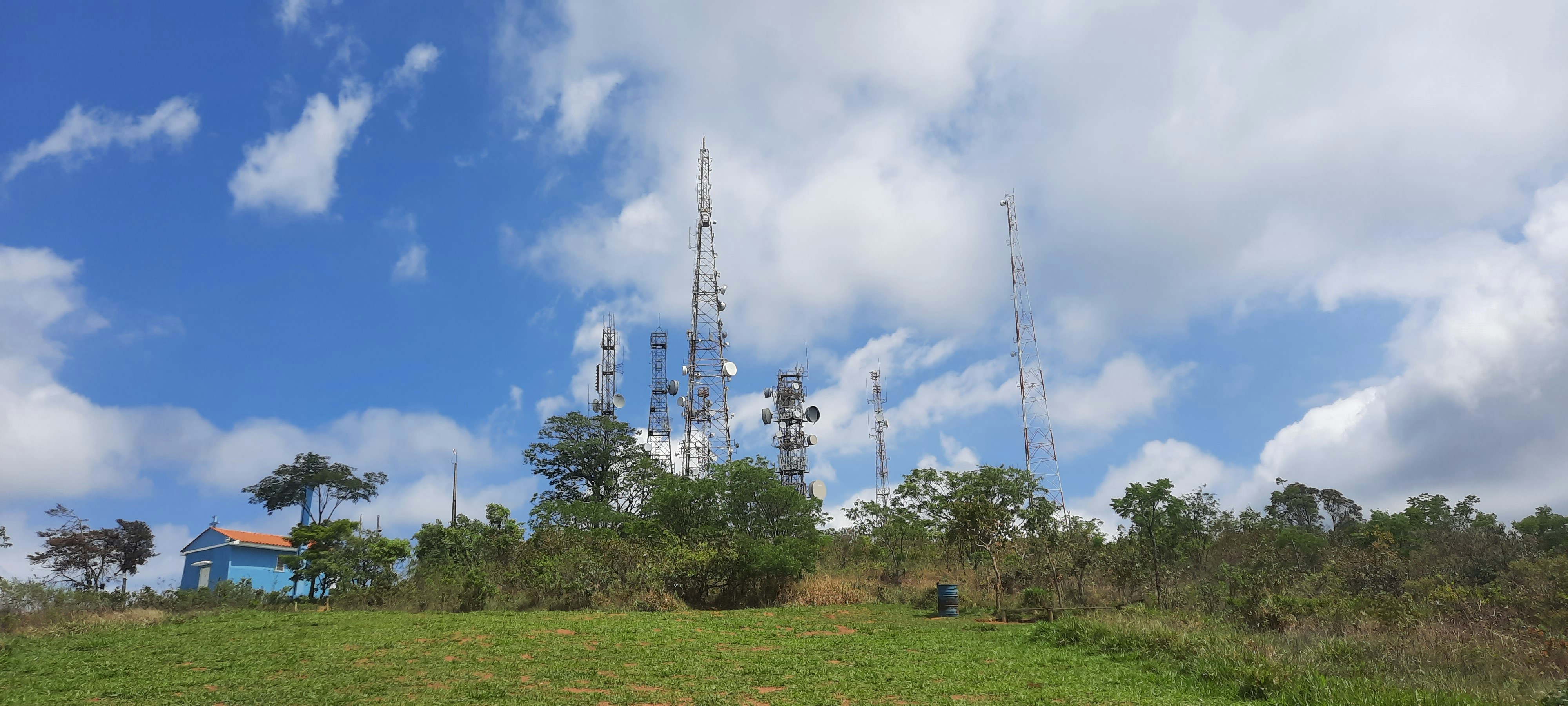Vodafone Idea-BSNL Merger: An analyst has suggested that a merger between Vodafone Idea and BSNL is the sole viable option for the Aditya Birla Group company’s survival. Meanwhile, Vodafone Idea shares are rising amid reports of potential government relief in the Rs 84,000 crore AGR dues case.
The telecom industry in India has witnessed significant transformations over the past few years, characterized by intense competition, evolving consumer demands, and regulatory changes. As of now, leading players such as Vodafone-Idea and BSNL (Bharat Sanchar Nigam Limited) are grappling with numerous challenges that threaten their market position and financial stability. These challenges are largely driven by the aggressive pricing strategies adopted by newer entrants, coupled with the increasing demand for data services.
Vodafone-Idea, a merger of two telecom titans, has found itself in a precarious situation. The company faces mounting financial pressure due to substantial debt levels and a shrinking subscriber base. The competitive landscape, marked by the rise of dominant players like Reliance Jio, has led to successive rounds of tariff cuts, further eroding profit margins. Consequently, Vodafone-Idea has struggled to offer competitive tariffs while sustaining necessary investments to upgrade infrastructure and improve service quality.
On the other hand, BSNL, a state-owned entity, is also contending with its own set of obstacles. While it has an extensive network across urban and rural regions, the company has faced criticism for service redundancy and outdated technology. Despite governmental support aimed at revitalizing BSNL’s operations, the company continues to lag behind more agile private competitors. The necessity of adopting innovative business practices and modernizing technology infrastructure has never been more critical for BSNL’s survival.
These challenges have fueled discussions among industry analysts regarding the potential merger of Vodafone-Idea and BSNL. A merger could potentially create a financially robust entity capable of providing competitive services while addressing operational inefficiencies. Such a strategic alignment would not only bolster their market position but also enhance their ability to invest in technological advancements necessary to meet changing customer expectations.
Financial Challenges Faced by Vodafone-Idea and BSNL
The telecom industry in India is undergoing significant changes, with the financial challenges faced by major players such as Vodafone-Idea and Bharat Sanchar Nigam Limited (BSNL) coming into sharp focus. Both firms are grappling with substantial debt levels that severely restrict their ability to invest in necessary infrastructure and technology upgrades. Vodafone-Idea, for instance, has reported debts exceeding ₹1.9 lakh crore, primarily driven by exorbitant spectrum costs and legacy issues from the merger of Vodafone and Idea Cellular. This staggering debt burden affects operational viability and creates uncertainty in the eyes of investors and stakeholders.
Additionally, both companies have experienced a consistent decline in revenue, a trend exacerbated by fierce market competition. The rise of Reliance Jio significantly altered the competitive landscape, leading to aggressive pricing wars that have squeezed profit margins across the sector. Vodafone-Idea reported a loss of ₹7,000 crore for Q1 2023, illustrating how rapidly declining Average Revenue Per User (ARPU) poses a dual threat of revenue reduction and increasing financial instability. BSNL is also not immune to these pressures, as it continues to lag behind private players in mobile subscribers, hampering its revenue potential.
Operational inefficiencies further exacerbate the financial stresses faced by both companies. Vodafone-Idea’s complex organizational structure, combined with high operational costs, necessitates transformative changes to streamline operations and reduce expenditures. Regulatory policies, such as those mandating rural service provision, add further financial strain, making it challenging for both firms to maintain profitability. Given these financial difficulties, the proposed merger could be a strategic move aimed at pool resources, reduce debt levels, and enhance competitive positioning in the market. A merger not only offers a solution for addressing immediate financial woes but also paves the way for future growth and resilience in an increasingly challenging environment.
Potential Benefits of the Merger
The proposed merger between Vodafone-Idea and Bharat Sanchar Nigam Limited (BSNL) could yield numerous benefits for the Indian telecom sector. One of the primary advantages stems from the potential for significant cost synergies. By combining their operations, the entities may consolidate infrastructure and reduce redundant expenditures, thereby increasing operational efficiency. This could lead to improved profit margins, which are crucial in a competitive industry characterized by slim margins.
Furthermore, the merger is poised to create an expanded customer base. With Vodafone-Idea’s existing subscriber base combined with BSNL’s, the new entity could reach a broader demographic, particularly in rural and underserved areas. This is especially pertinent as the Indian government aims to enhance digital connectivity across the nation. A more extensive customer reach can enable the merged company to offer tailored services that meet diverse consumer needs.
Additionally, the merger can result in enhanced service offerings, leveraging the strengths of both companies. The integration could potentially lead to improved network coverage and quality of service, which are vital in areas often plagued with network issues. Enhanced technological advancements could also be anticipated, as the merger would facilitate shared resources for research and development of innovative solutions. This could include advancements in 5G technology, IoT solutions, and more efficient data management systems.
Moreover, the merger could foster increased competition in the telecom market. By creating a more formidable competitor, the new entity may compel other players to boost their service quality and reduce prices, ultimately benefiting consumers. In a rapidly evolving telecom landscape, such advancements could ensure that customers receive better value and service quality.
Challenges and Considerations in the Merger Process
The merger proposal between Vodafone-Idea and BSNL is poised to reshape the telecommunications landscape in India; however, it faces a multitude of challenges that could significantly impact its feasibility and success. One of the foremost obstacles lies in acquiring regulatory approvals, which can be a lengthy process influenced by various government policies and competition concerns. Telecommunications regulatory bodies will scrutinize the implications of such a merger on market competition and consumer choice, making it critical for the partnering entities to present a strong case to navigate regulatory hurdles effectively.
Another major consideration involves the integration of the differing corporate cultures of Vodafone-Idea and BSNL. Each organization possesses its own operational frameworks, management styles, and corporate identities. Merging these contrasting cultures presents the potential for conflicts and misunderstandings among employees, which can hinder collaboration and efficiency. Effective communication strategies and well-planned integration processes will be essential to foster a unified corporate environment that enhances productivity while mitigating cultural clashes.
Additionally, stakeholders must address concerns regarding job losses. Mergers often lead to redundancies, creating anxiety among employees about job security. This uncertainty could foster dissent or low morale among the workforce, which in turn may affect service delivery and customer satisfaction. It is crucial for the merger framework to include provisions for employee retention and to implement support programs for those affected by potential layoffs.
Finally, stakeholder reactions from consumers and employees will play a pivotal role in shaping public perception of the merger. Positive stakeholder engagement that emphasizes transparency and collaborative objectives is vital for gaining the trust of the workforce and customers alike. If not managed effectively, these challenges might not only jeopardize the merger’s success but could also impact the overall stability and competitive landscape of the telecom sector in India.
Stay updated with the latest news from the telecom sector by following our channel, Tech News. Don’t forget to connect with us on Twitter, and Facebook for real-time updates and insights.




